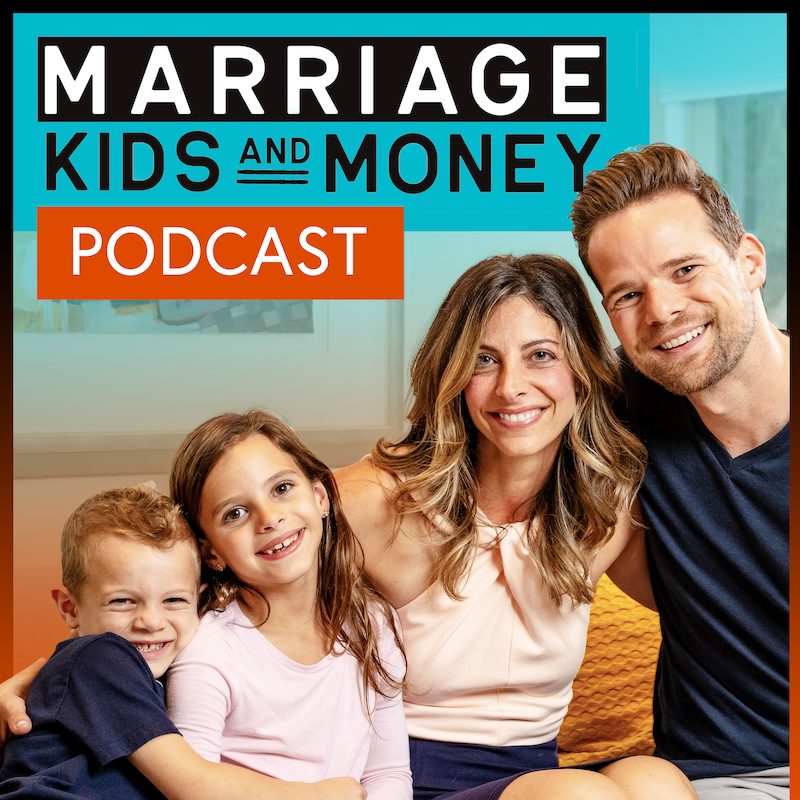Our question of the month comes in from Luke from Indiana:
Hey Andy,
I was reading on your blog that you recently paid off your mortgage early. Congratulations!
I’m a Dave Ramsey guy like you and we’re getting close to baby step 6. I’m considering going heavy into paying off my mortgage like you did, but I’m also thinking it might be smarter for me to invest more for my retirement or just simply invest in the market. I also know market returns are unpredictable and we’re near all-time highs.
I have a 15-year mortgage at around 4% and the principal sits around $200,000. My wife and I are both working – we like what we do and combined we make around $200,000 per year. I feel like we could throw $50k per year at the mortgage and we’d be done in 4 years or less.
That could also be a good amount to throw at our retirement each year too.
What would you suggest for us? Should we pay off our mortgage or invest the money?
Thanks for doing what you do – your podcast has been really helpful for me and my wife.
Luke
Nice work Luke!
You have a $200k household income and are on baby step 6 of the Dave Ramsey program. For those of you who don’t know the Dave Ramsey lingo, baby step 6 means that Luke and his wife are debt-free (outside of the mortgage), they have at least 3 months of expenses in an emergency fund and they are investing 15% of their income in retirement.
So Luke and his wife are pretty much rock stars!
And now Luke wants to know where to place his money now. Hmmmm!

Well, I was in a very similar situation to you when we started our mortgage pay down process. Fortunately or unfortunately for me, I followed the Total Money Makeover by the book. Whatever Dave Ramsey said, I did.
It wasn’t really until a few years ago I started to think, “Maybe I shouldn’t be paying off my mortgage early. Perhaps I should invest more instead.” But honestly, we were halfway through paying off our mortgage and I just didn’t want to stop.
I have no regrets about eliminating our mortgage. I think it was an awesome idea and I definitely love the freedom and reduction of stress that has come into my family’s life since we paid it off. BUT I would have done things a little differently if I were in your shoes, Luke.
Here are 3 things I’d consider for your situation BEFORE paying down the mortgage:
1. Max Out Your Workplace 401k’s
If you’re only investing 15% of your household income into retirement, then it may be time for you to increase your contribution. 15% of your $200,000 income would be $30,000. While that’s awesome, that leaves you about $7,000 short of maxing out your 401ks when the maximum contribution is $18,500. If you get an employer match, that’s free money you're leaving on the table.
I’m not sure how your office programs work, but mine matches 15% of our contributions so if I invest the max of $18,500 this year, I’ll get $2,775 in free money! Say it with me now … free money!
Luke, check out your wife’s office 401k program and check out yours. You may just be missing out on some free money. Even if the match isn’t incredible, maxing out your 401ks will help you pay fewer taxes now on your big ole $200,000 annual income.
Related Post: 3 Smart Reasons for New Investors to Choose Index Funds
2. Max Out Your IRAs
Depending on your exact income level (I know you said “around $200,000”), your taxable income may be lowered enough by your pre-tax retirement 401ks savings for you and your wife to contribute to a Roth IRA.
There are loads of benefits with a Roth IRA as I’m sure you know:
- Up to $5,500 per year in contributions (in 2018)
- Tax-free growth
- Tax-free withdrawals
If you would rather decrease your taxable income further, then opt for the Traditional IRA.
- Similar to the Roth, $5,500 in contributions in 2018
- Pre-tax contribution that lowers your taxable income (not a bad idea for you high-income earners)
Whatever you choose, Roth or Traditional, consider maxing these bad boys out. There are lots of tax benefits!
3. Max Out the HSA
Luke, do either you or your wife have a High Deductible Health Plan through your workplace benefits?
If so, I would consider signing up for it. You’ll get lower monthly premiums for the exchange of a higher deductible. And since you now have such a healthy emergency savings account, you can cover those high deductibles if needed.
Another major benefit of the High Deductible Health Plan is that you can sign up for an HSA plan. A HSA (or Health Savings Account) helps you save money tax-free against approved medical expenses. Those deductibles, co-pays and other medical costs can be covered tax-free.
The HSA is often confused with a FSA, but they are very different. The FSA requires you to use the balance of your contributions within the plan year or you lose the contributions. The HSA balance carries over year over year. No “use it or lose it” with the HSA.
Best of all, you can invest your money too!
Pre-tax/tax-deductible contributions, tax-free growth, AND the money can come out tax-free… So worth it!
Related Post: 15-Year Mortgage Paid in 5 Years
What About the Mortgage?
If you take advantage of all of these savings opportunities (pre-tax 401k, and let’s say you go with the traditional ira and a HSA), all in for both you and your wife you could reduce your taxable income by about $55,000.
THEN … I would start hacking away at the mortgage.
With your big income and a saver's mindset, I bet you could still pay that 15-year mortgage off in 5 years or less. You’re motivated. You’re making great money. Just think of where your retirement savings will be in 5 years. And think of how much disposable income you’ll have in 5 years with no mortgage.
Your future looks bright, Mr. Luke.
And as far as investing in a taxable brokerage account versus paying off the mortgage after you take advantage of these 3 areas I spoke about … that’s up to you.
If it were me, I would pay the mortgage off again … and again … and again. I love living in a house that I own free and clear, I love the reduced stress I have knowing that my annual expenses are much lower without a mortgage.
So long story short Luke, invest a boatload in your tax-advantaged retirement accounts and then destroy that mortgage.
Congratulations on getting to this spot in your life. You and your wife should be very proud.
Money Master of the Week
Mark from St. Louis just paid off $50,000 in student loans and his $100,000 mortgage in 7 short years!
After fighting shiny object syndrome and delaying some house improvements, Mark and his family can now finally celebrate their mortgage freedom. They are going to take some family trips together and do some nice updates to their new paid for home.
With their additional funds, Mark and his family will now be saving up for their first rental property. Legacy wealth is in their future!
Mark from St. Louis is our Money Master of the Week!
You can follow Mark and learn about his mortgage destruction at Financial Pilgrimage.
Carpe Diem Quote
“Yesterday ended last night. Today is a brand-new day.”
-Zig Ziglar



5 Comments
This definitely is a big debate regarding paying off the mortgage or investing the proceeds instead.
I personally went with paying off the mortgage early and it definitely was the best decision for me.
Sure I know I left money on the table because I would have gained more given the large bull run in the stock market we have been enjoying but that is looking back in retrospect. There is no way you can predict what the market will do or the timing of the market when you put the extra money in.
Say you have a lump sum and have to choose between paying off the mortgage in one shot or invest. If you invest and the market drops 50%, it would take a gain of 100% just to get back to even. Paying off the mortgage you have a guaranteed return.
That was great advice, and exactly what I would have done. I payed my mortgage off in ten years. I also blogged up about it.
Mortgage freedom is awesome! I’m glad to hear you’re enjoying the reduced stress as well ?
My husband and I are on the exact plan you’ve outlined. 2018 is the first year we’ve maxed out his 401k, our individual Roths, and the family HSA. We’ve been playing catch up with our retirement savings in the past few years, because we had no clue how much we should be saving in our 20s. (And thus, we were under-saving for retirement but making extra payments toward our mortgage, making home updates with cash, etc. Not bad financial decisions, but not quite optimal.) Now that we’re on track with retirement savings, I am excited to keep chipping away at our mortgage.
I’m curious if there is a formula you recommend to folks to gauge if they are on track for retirement. (I.e. two times their income by a certain age, etc).
It sounds like you two are killing it! Nice work ?
While I do like those “should have saved this much by age 30” articles, your retirement savings is so personal. It really depends on how much you want to live on in retirement. I like using a 30x your annual expenses rule (while not perfect) as a decent gauge of how much we’ll need.
Since Nicole and I have decreased our living expenses to around $60k per year, we’ll loosely need $1,800,000. Obviously, that’ll vary based on inflation and how much of our retirement savings is taxed (pre-tax vs. post tax) and how much we’ll receive from social security.
We’re WAY far away from that mark now, but we still have 25 years of compound interest before we’re 60!